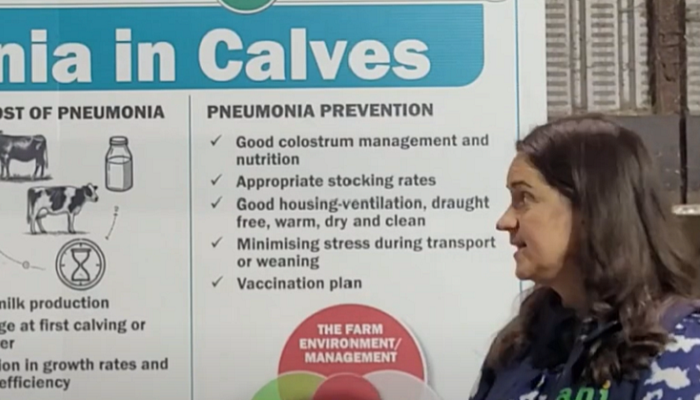05 February 2025
Pneumonia – minimising the risk

Pneumonia is a leading cause of illness in animals between weaning and 10 months of age. Various factors contribute to the development of pneumonia in this age group.
As part of the recent series of Teagasc and Animal Health Ireland (AHI) Calf Care events, supported by Feed for Growth, AHI’s Michelle McGrath discussed the factors that influence pneumonia including:
- The presence of certain viruses and bacteria;
- Poor colostrum intake;
- Poor housing/ventilation;
- Poor nutritional status / previous incidence of scour;
- Over-crowding;
- Presence of older animals.
Michelle McGrath noted that some of the costs associated with pneumonia are visible, while others, such as reductions in milk yield during the first lactation, older calving ages or older ages of finish, tend to lower on-farm productivity and profitability.
On how to minimise the impact of the disease, Michelle McGrath identified two key principles – 1). Ensuring the calves receive adequate quality colostrum within the first two hours of life and 2). Keeping the level of infection pressure in the shed as low as possible. These two principles centre on good colostrum management and nutrition; appropriate stocking rates; good housing that is adequately ventilated, draught free, warm, dry and clean; minimising stress during transport and weaning; and the implementation of a vaccination plan.
For further tips and advice on pneumonia prevention, watch the brief video below:
Also read: Calf rearing: Achieving optimal ruminal development
